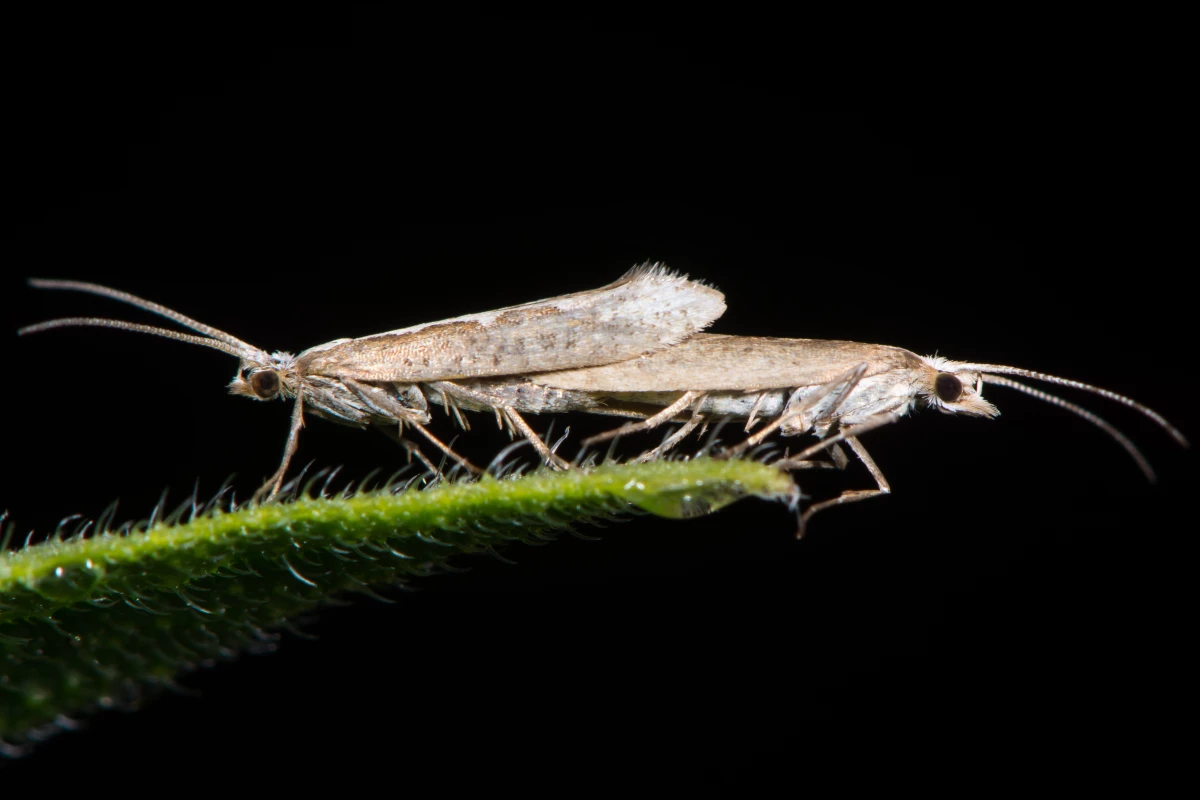Not only are diamondback moths quite harmful to brassica-genus crops such as cabbage, broccoli and canola, but they're also very resistant to insecticides. Help may be on the way, though, in the form of a genetically-engineered version of the moth.
Developed by British biotech firm Oxitec, the "self-limiting" strain of the diamondback moth was recently the subject of a study conducted by scientists from Cornell University. The insect controls moth populations as follows …
Initially, male self-limiting moths are released into the fields. There, they mate with regular female moths, passing along their modified genes. When those females subsequently lay eggs, none of the resulting female caterpillars survive to adulthood. Over the course of several such releases, because there are increasingly fewer female moths to mate with the regular males, the overall diamondback population drops significantly.
That said, the change isn't permanent. Once the releases of the engineered male moths cease, they reportedly disappear from the environment within a few generations.
The Cornell study is claimed to mark the first time that self-limiting agricultural insects have been released into an open field, and the results are quite promising.
"The self-limiting male insects behaved similarly to their non-modified counterparts in terms of factors that are relevant to their future application in crop protection, such as survival and distance traveled," says the lead scientist, Prof. Anthony Shelton. "In laboratory studies they competed equally well for female mates. Our mathematical models indicate that releasing the self-limiting strain would control a pest population without the use of supplementary insecticides."
A paper on the research was recently published in the journal Frontiers in Bioengineering and Biotechnology.
Source: Frontiers Science News




